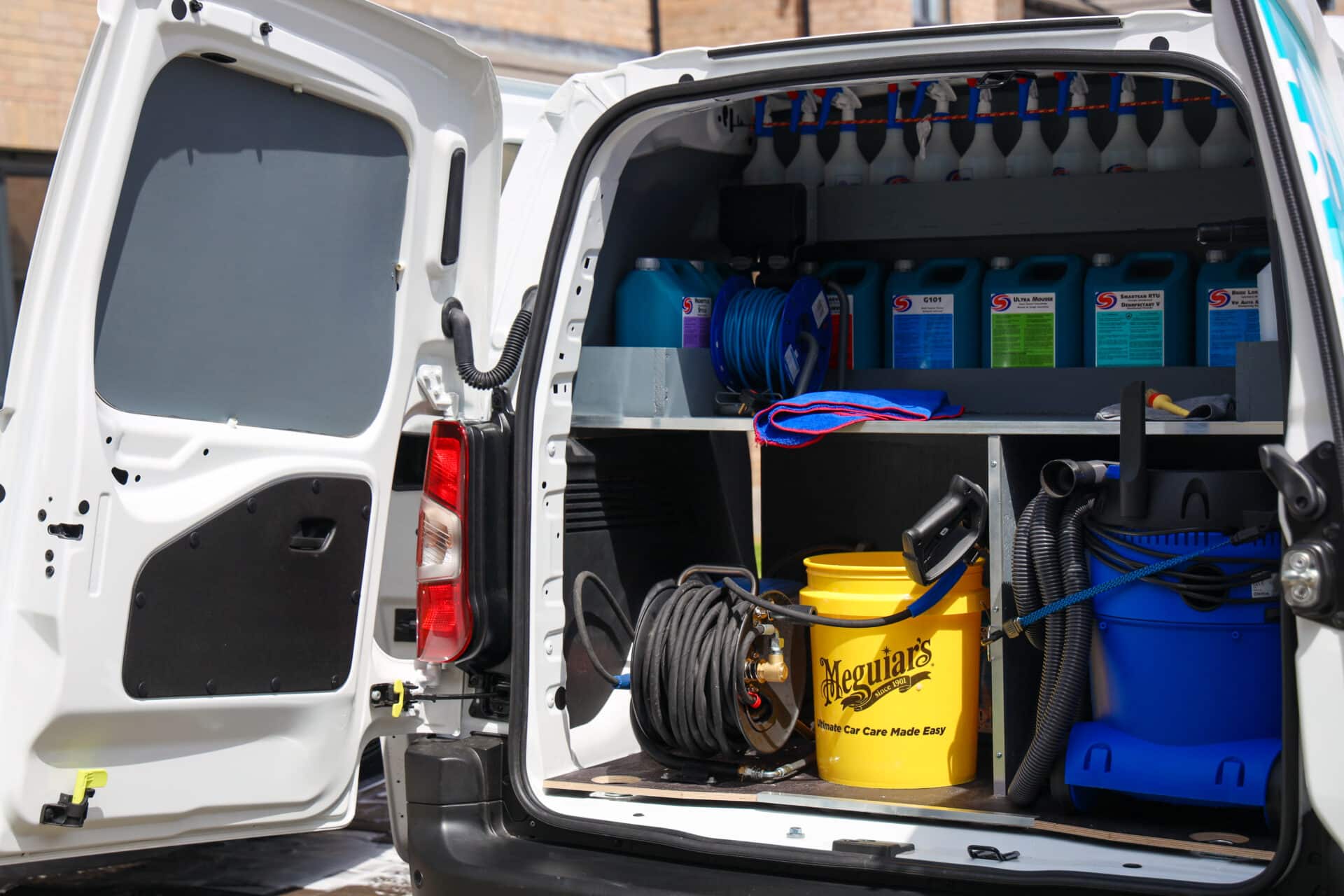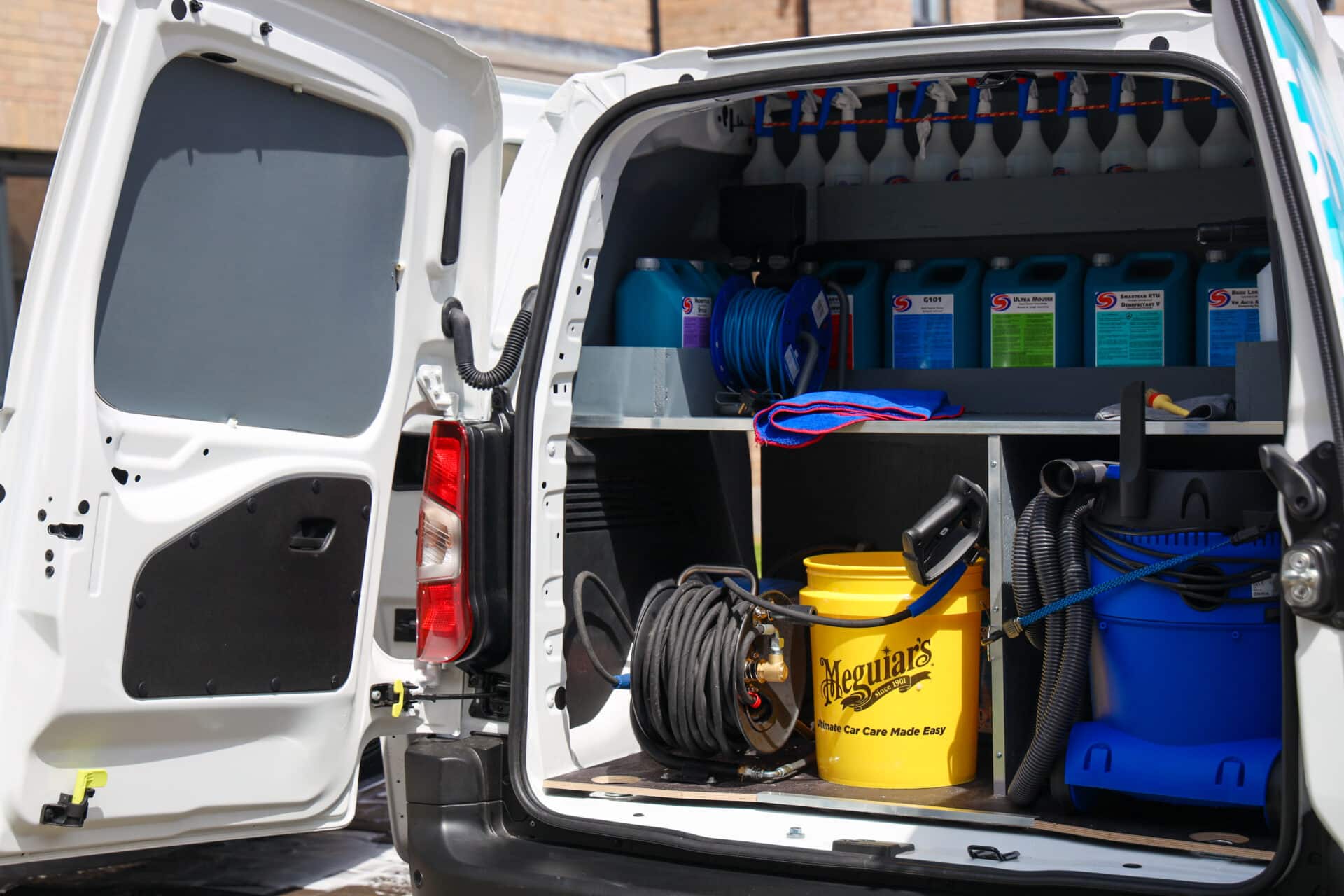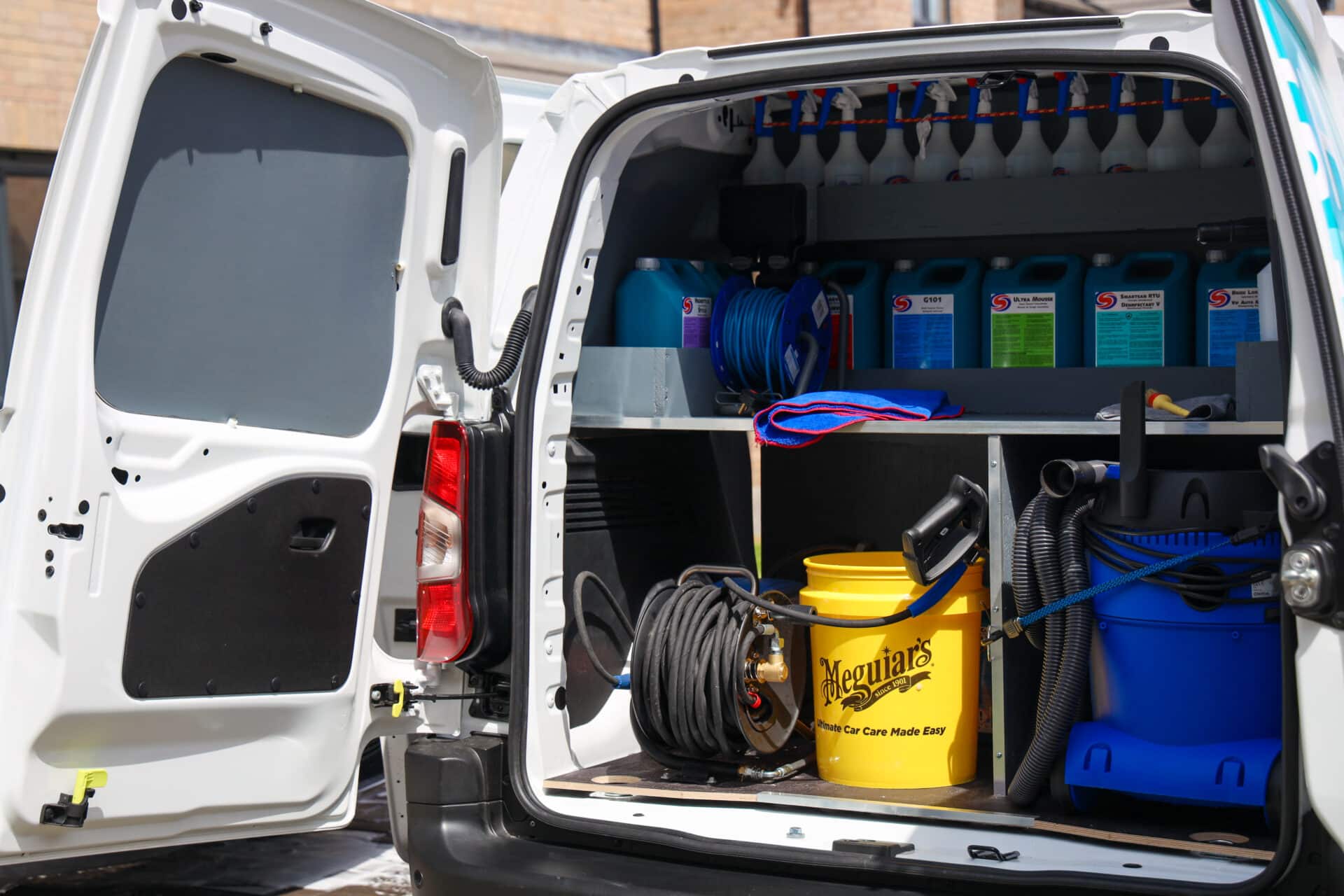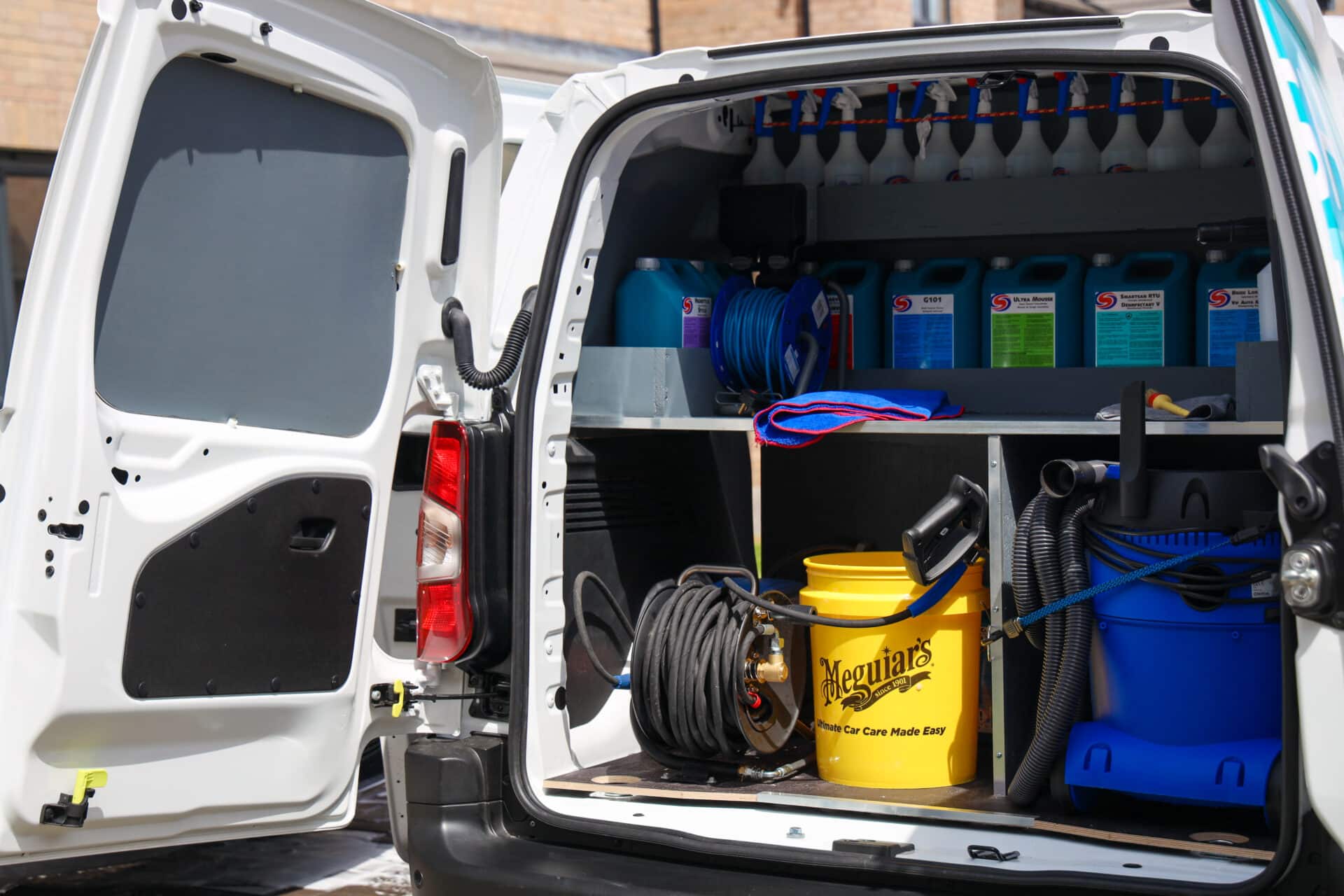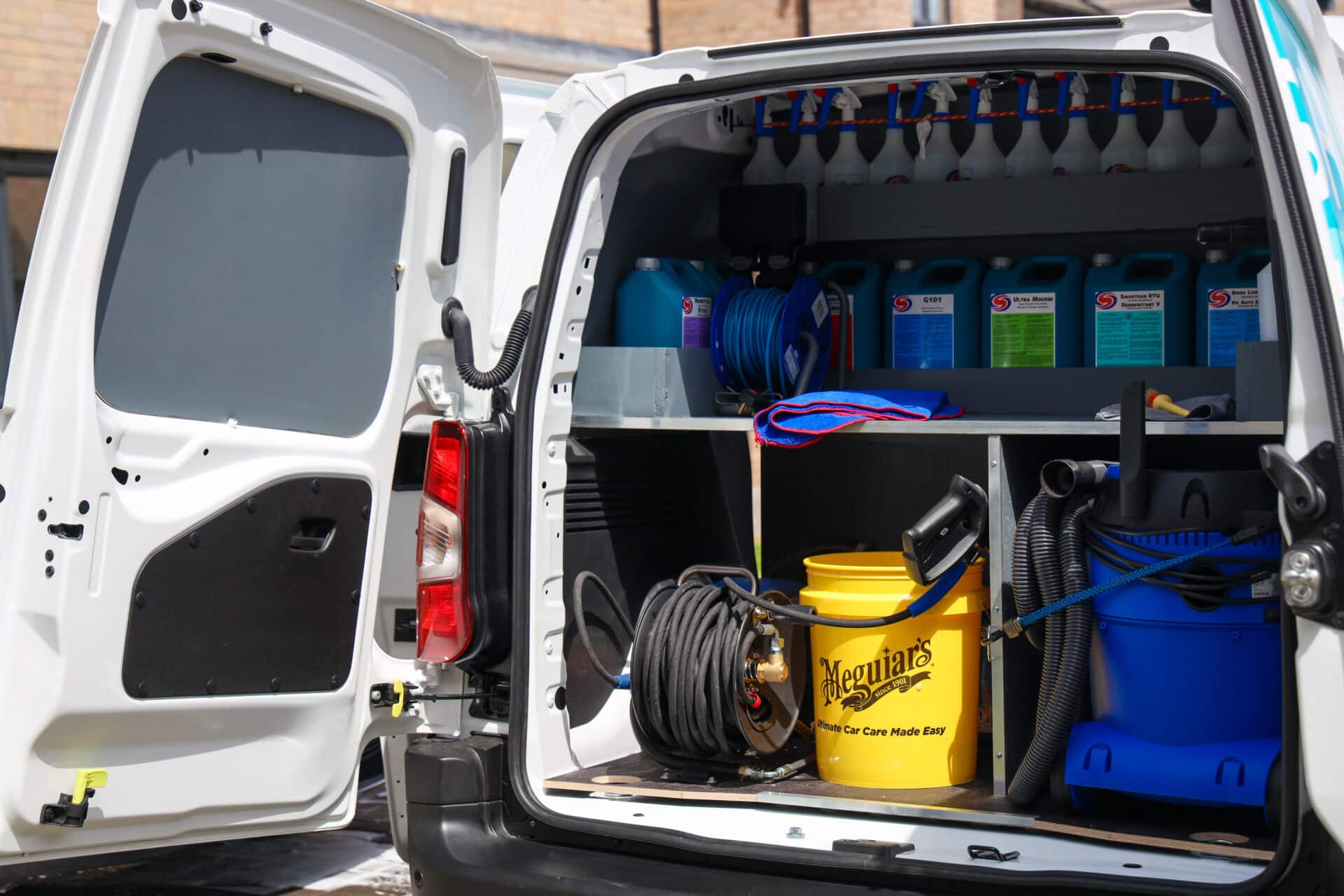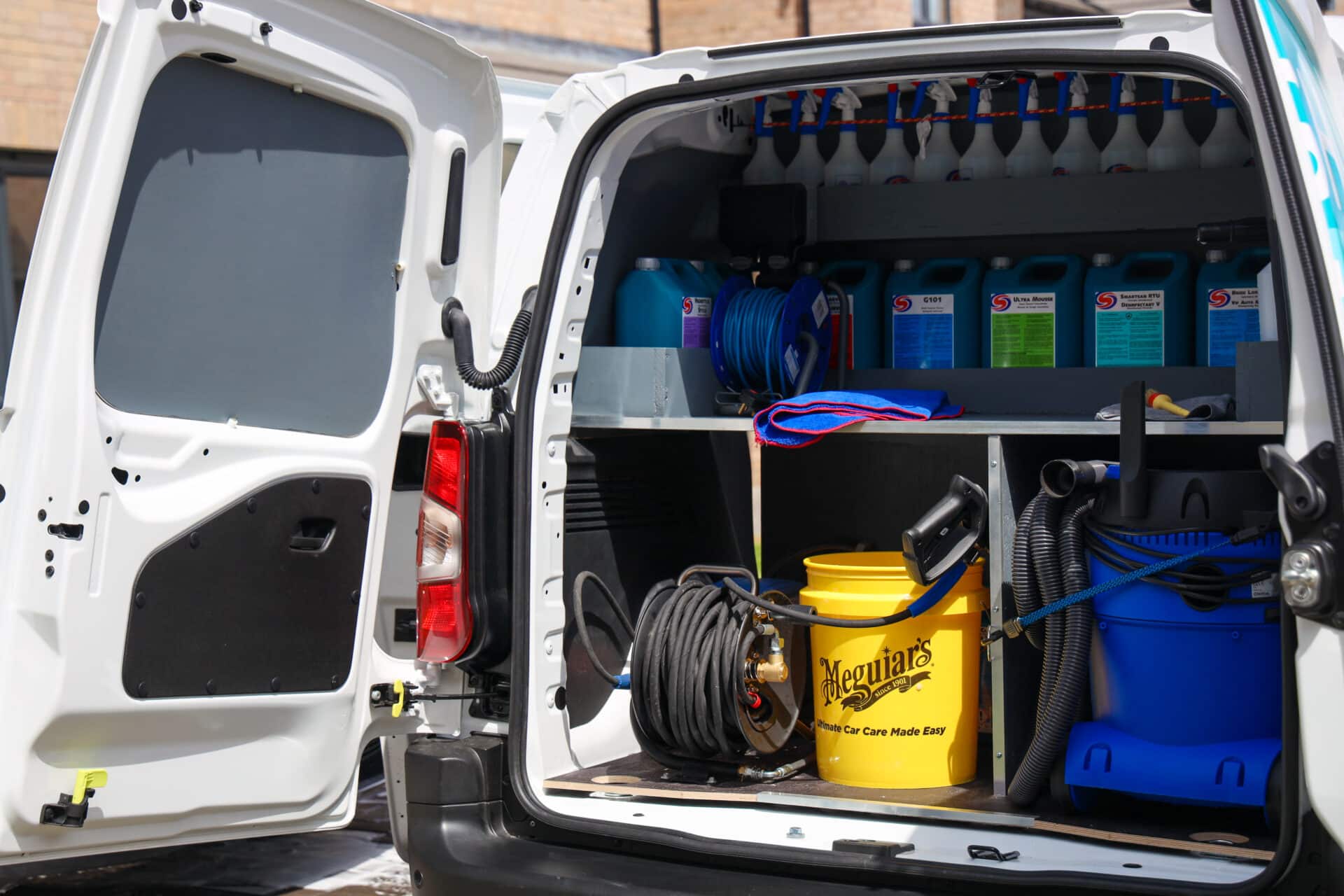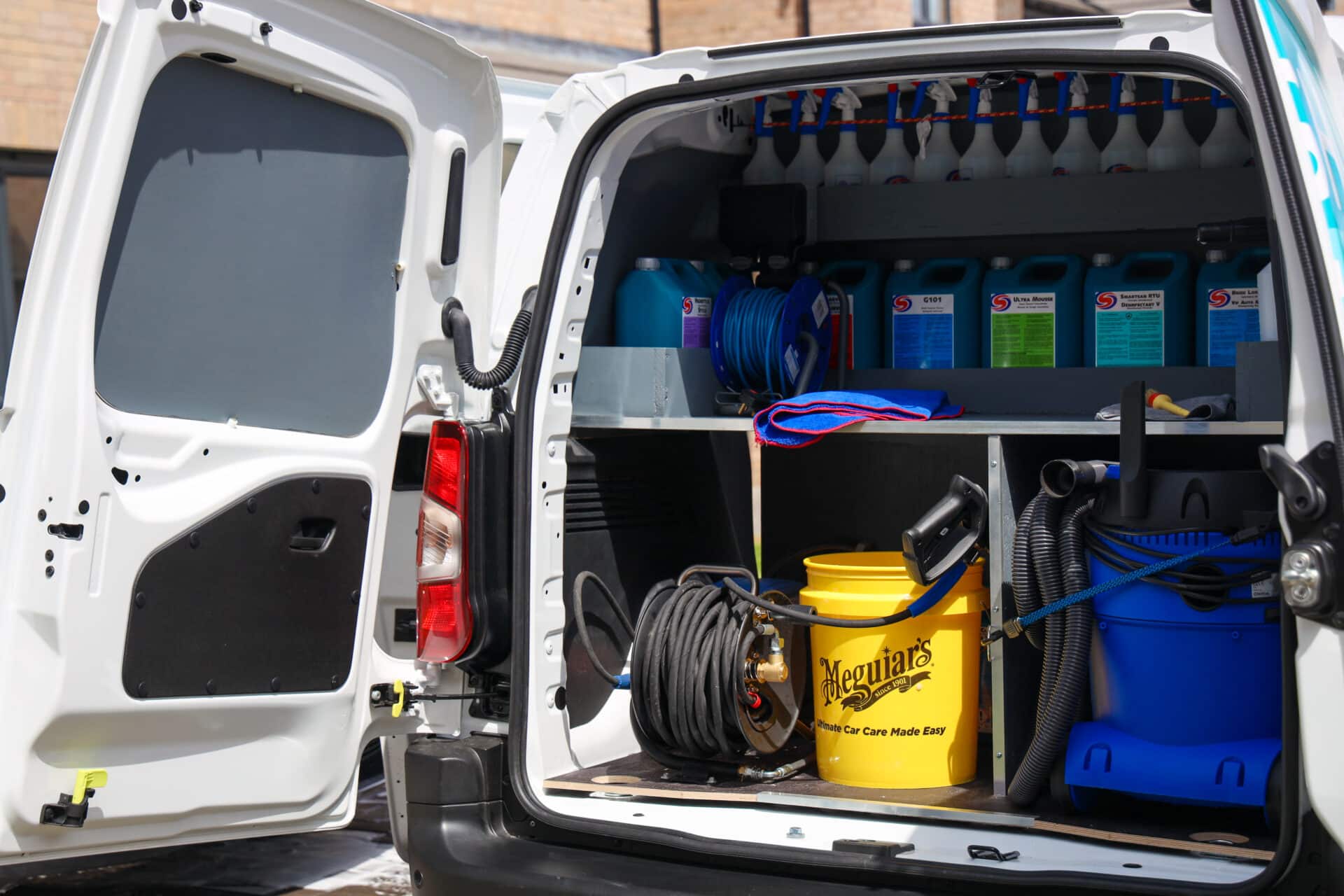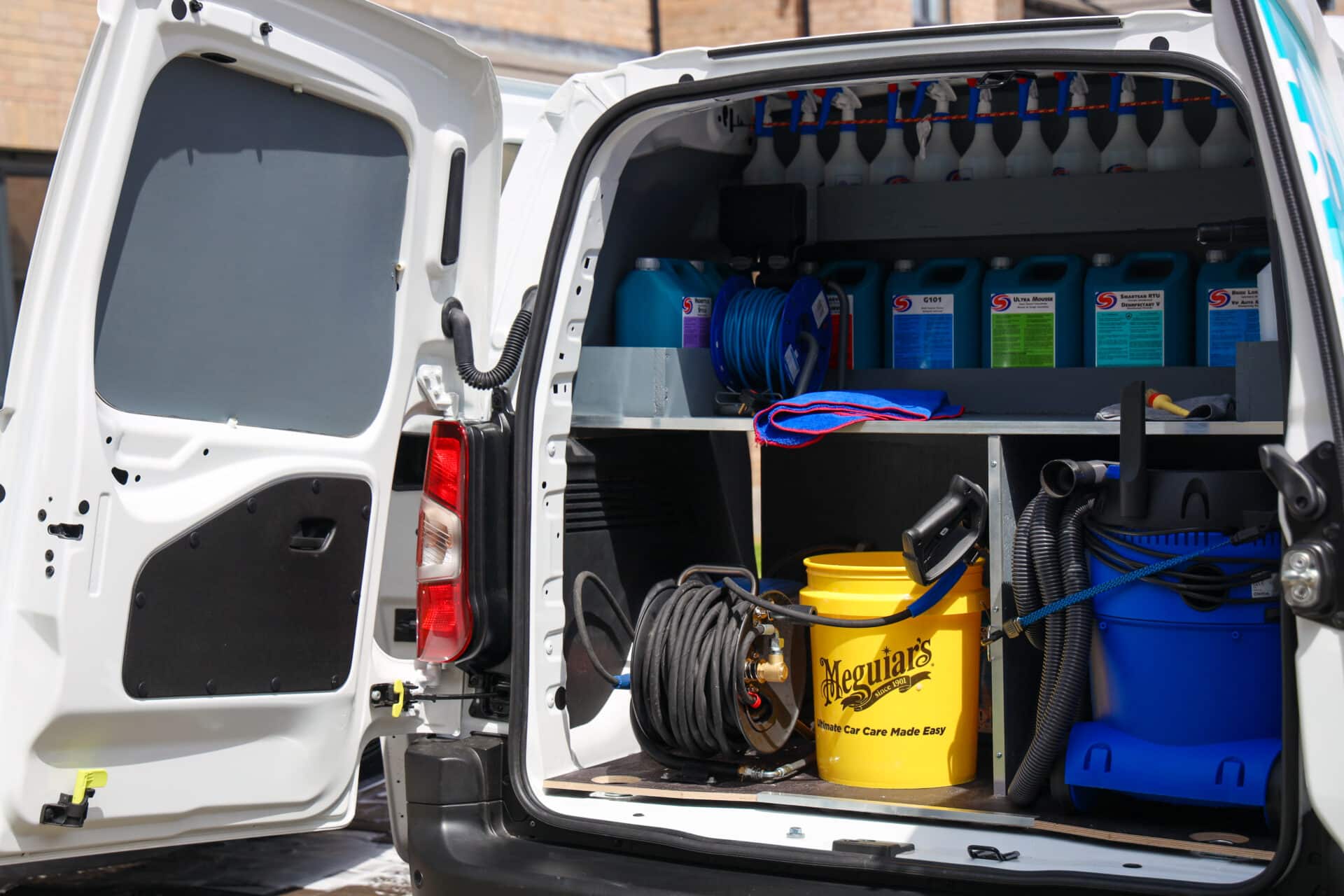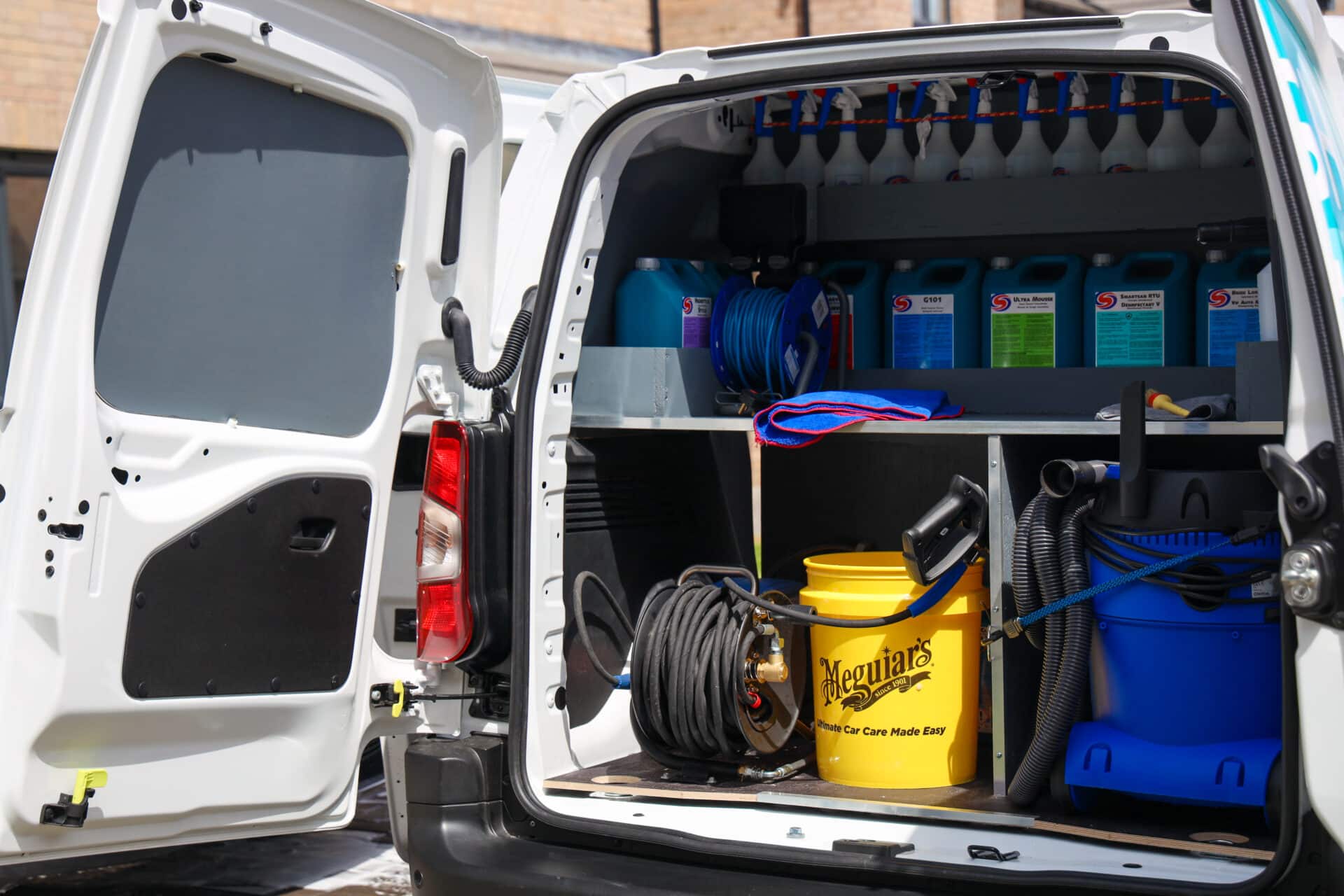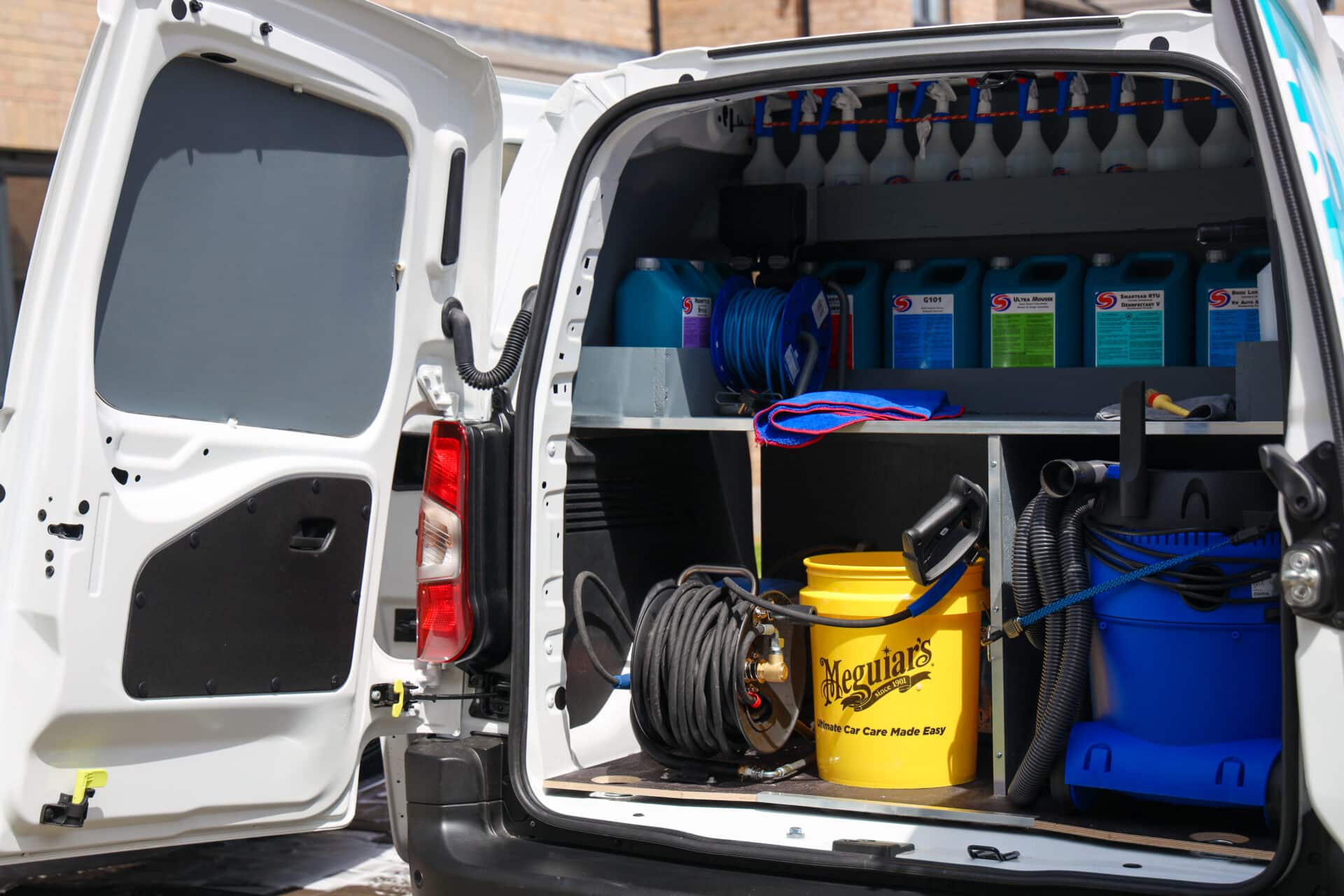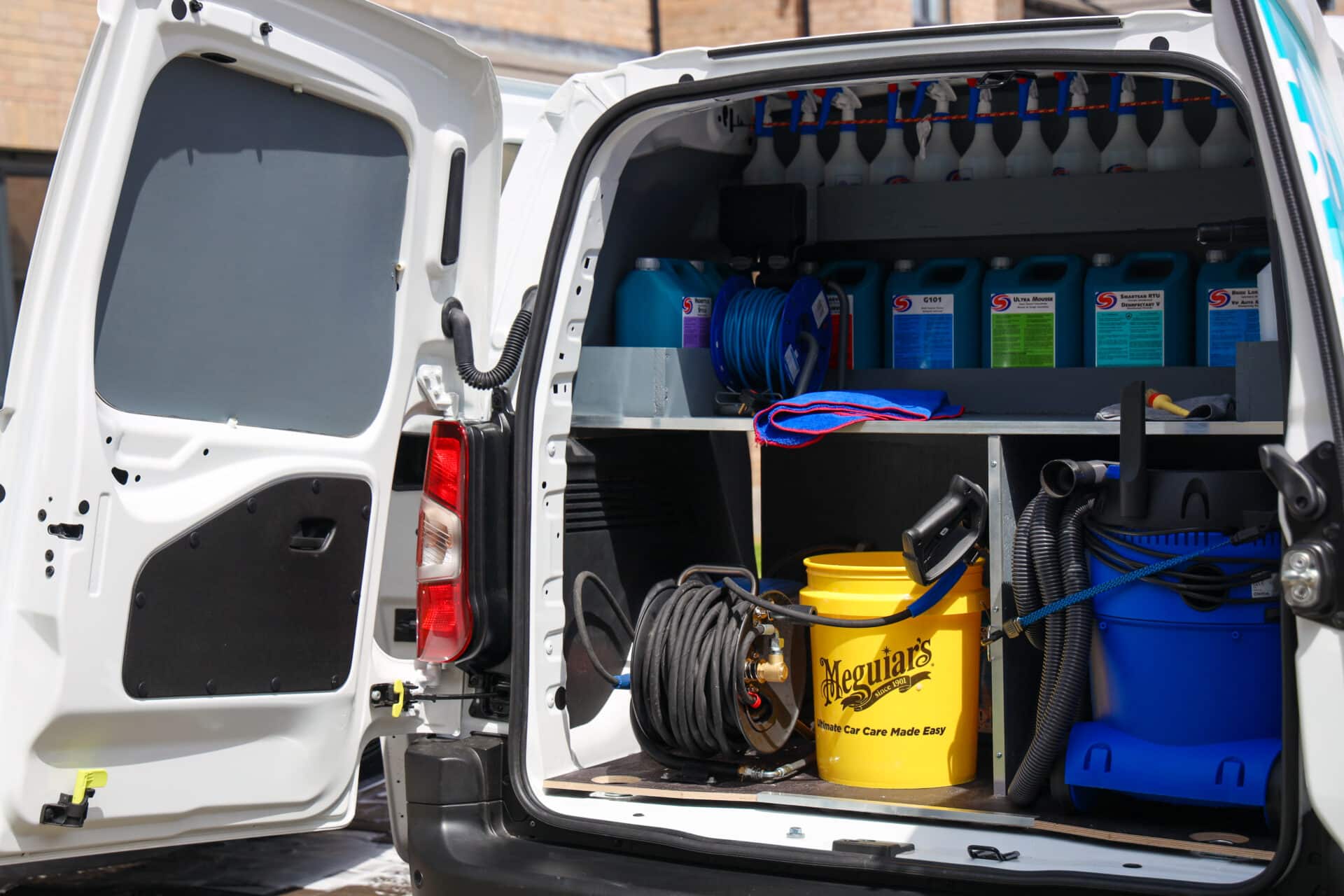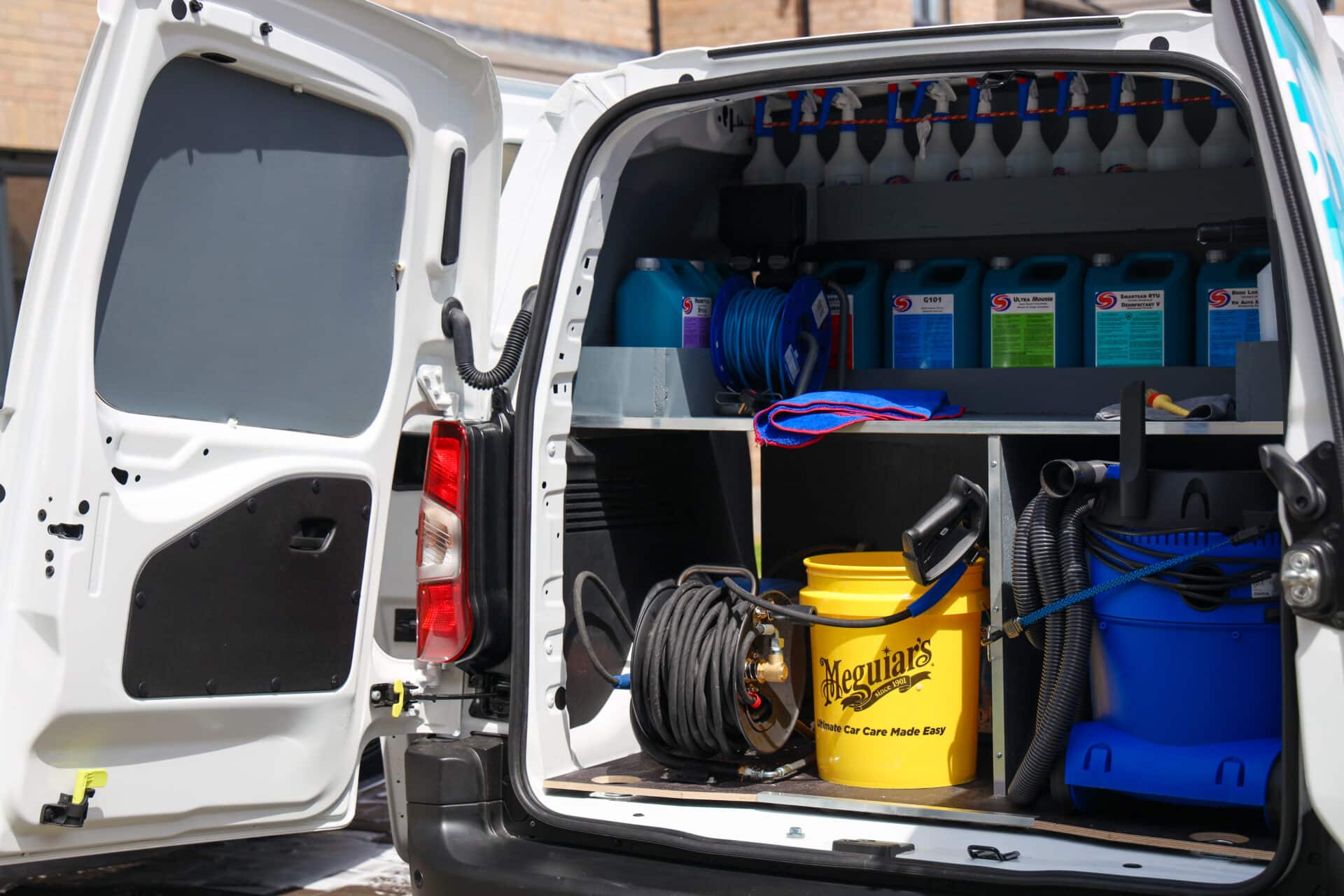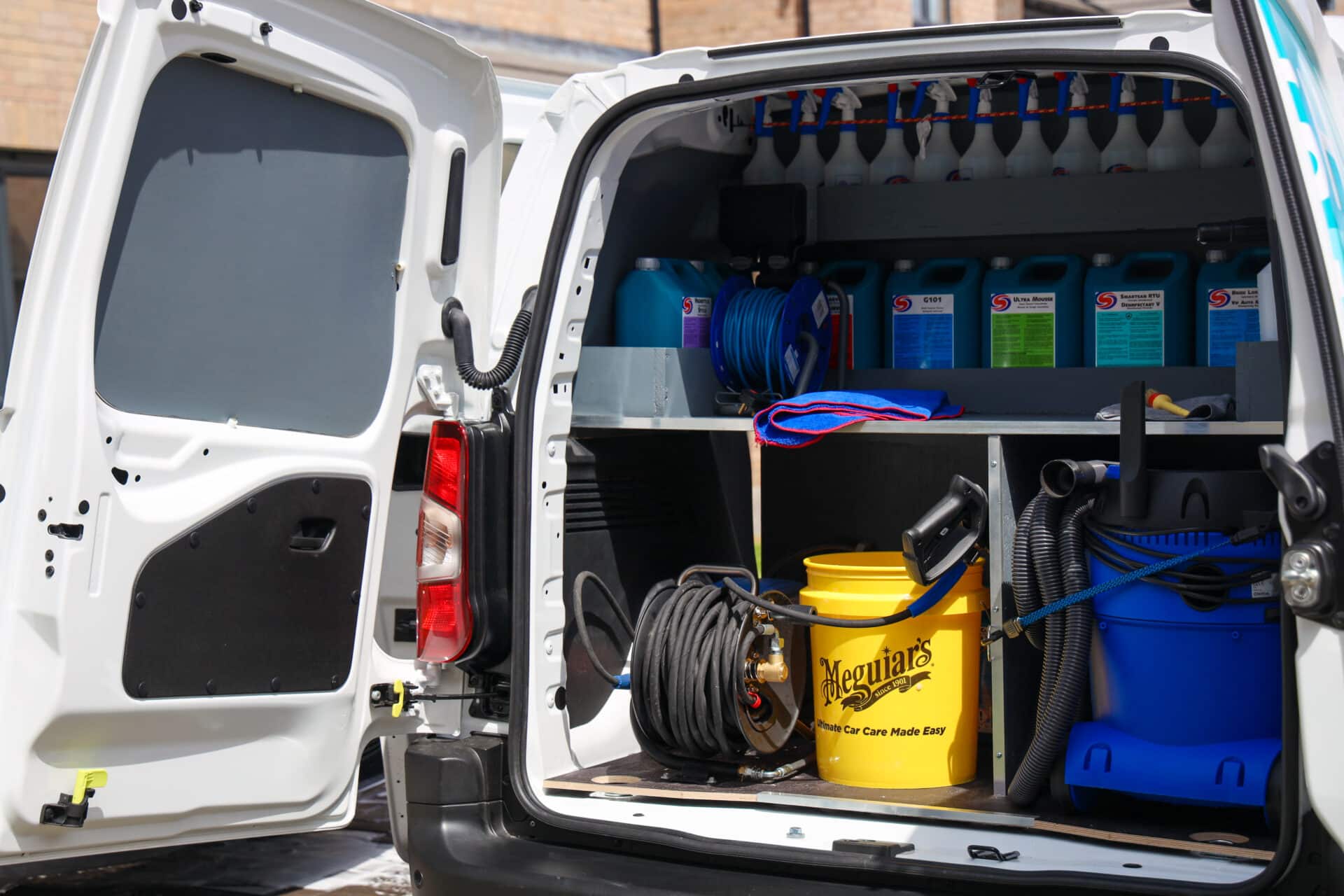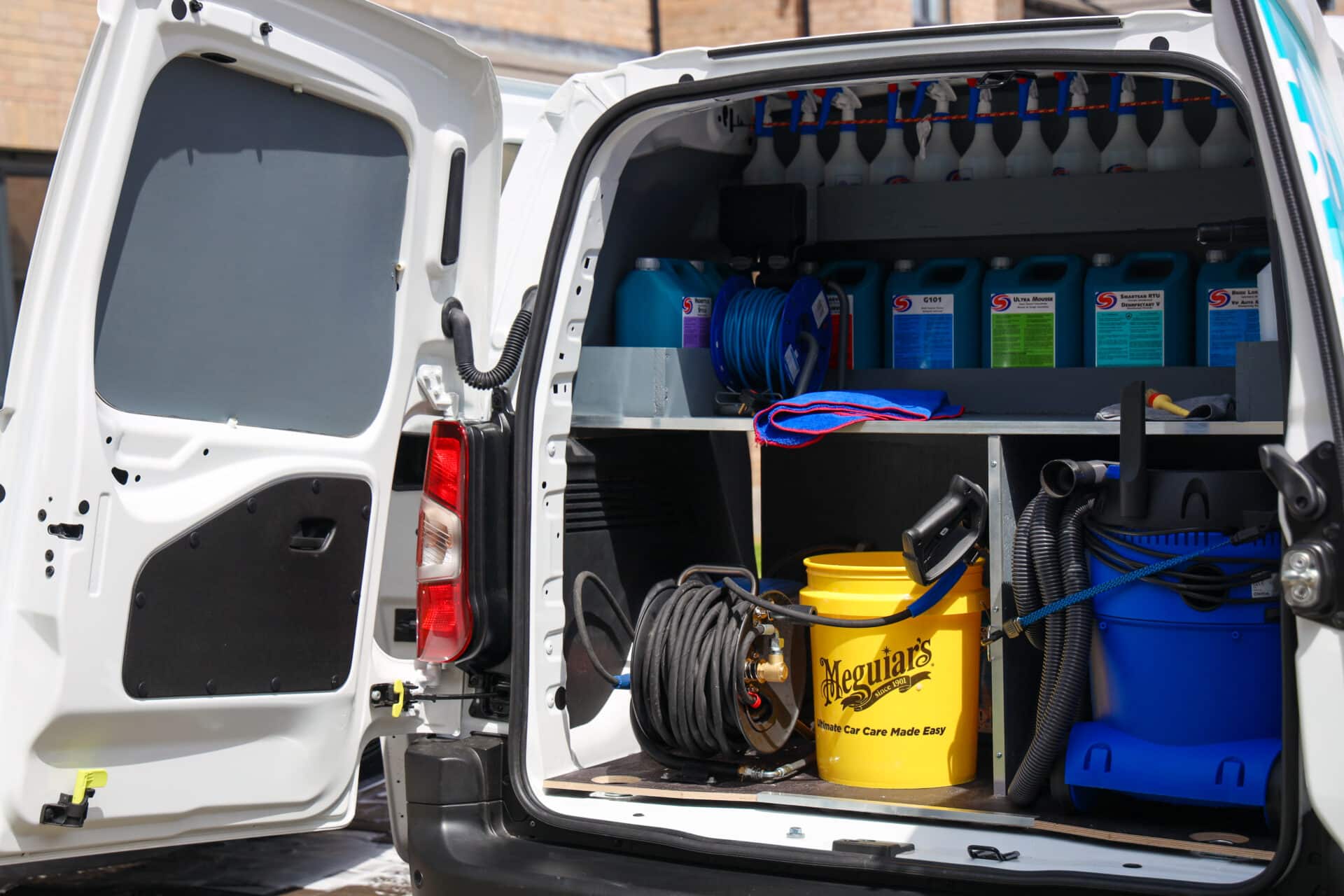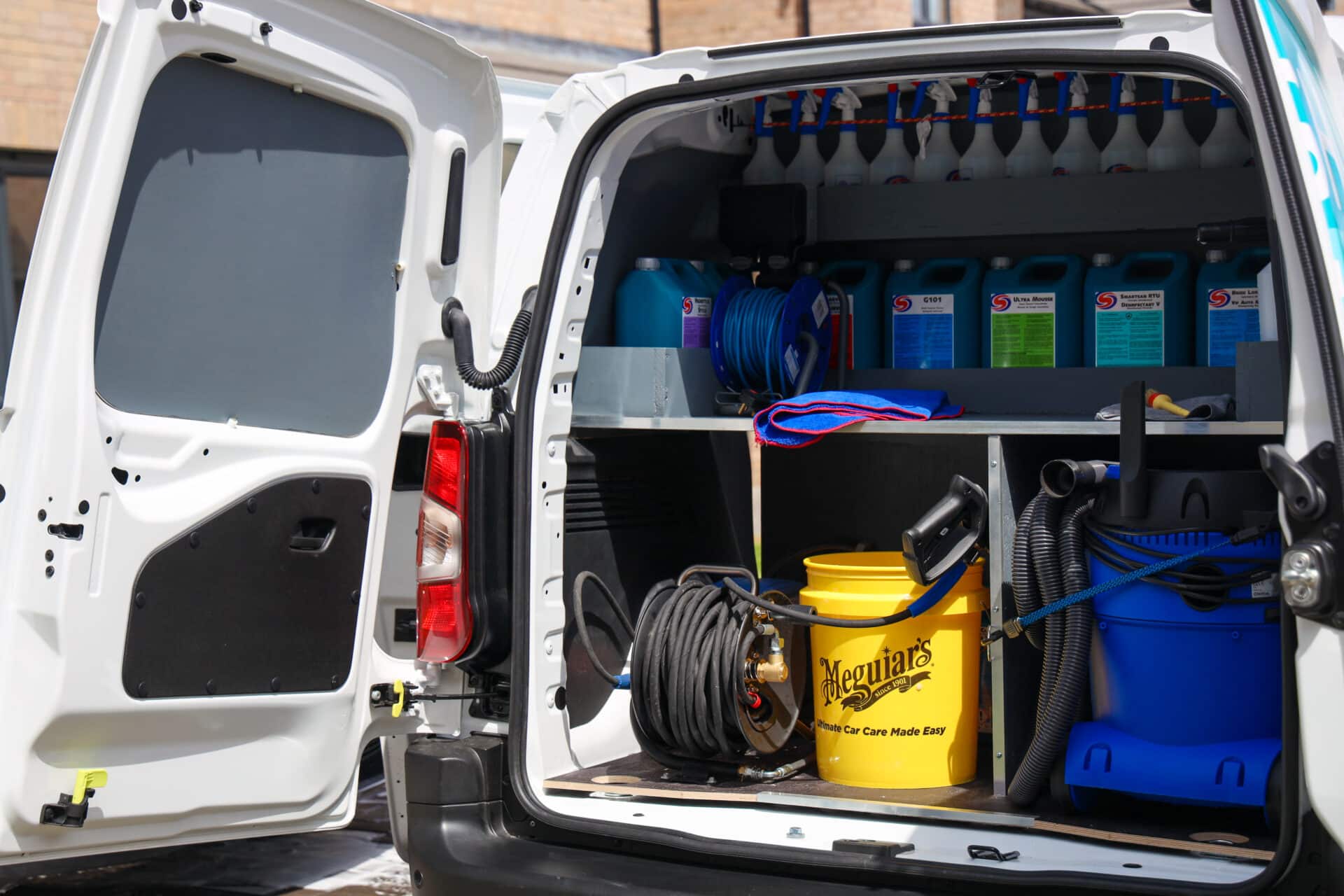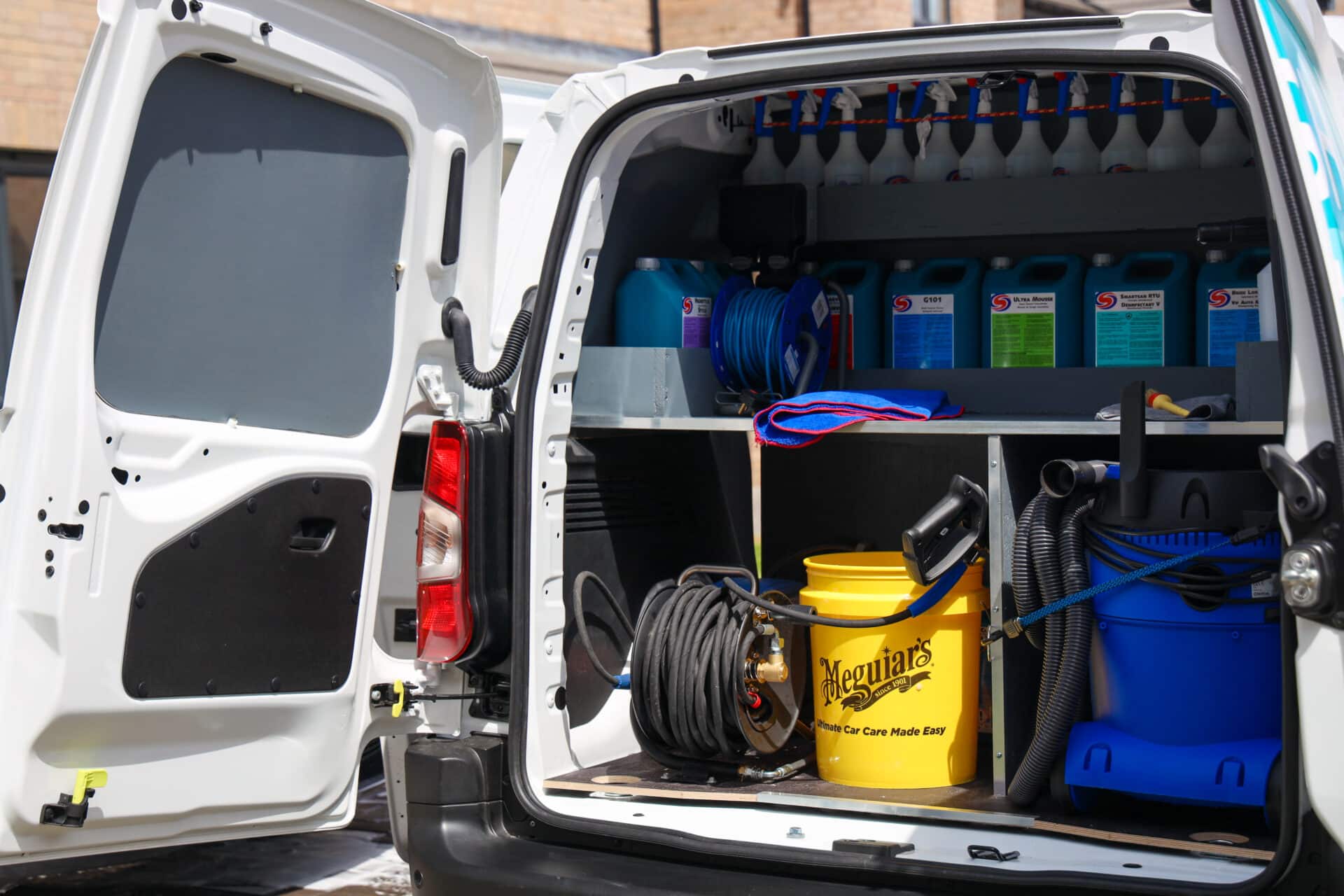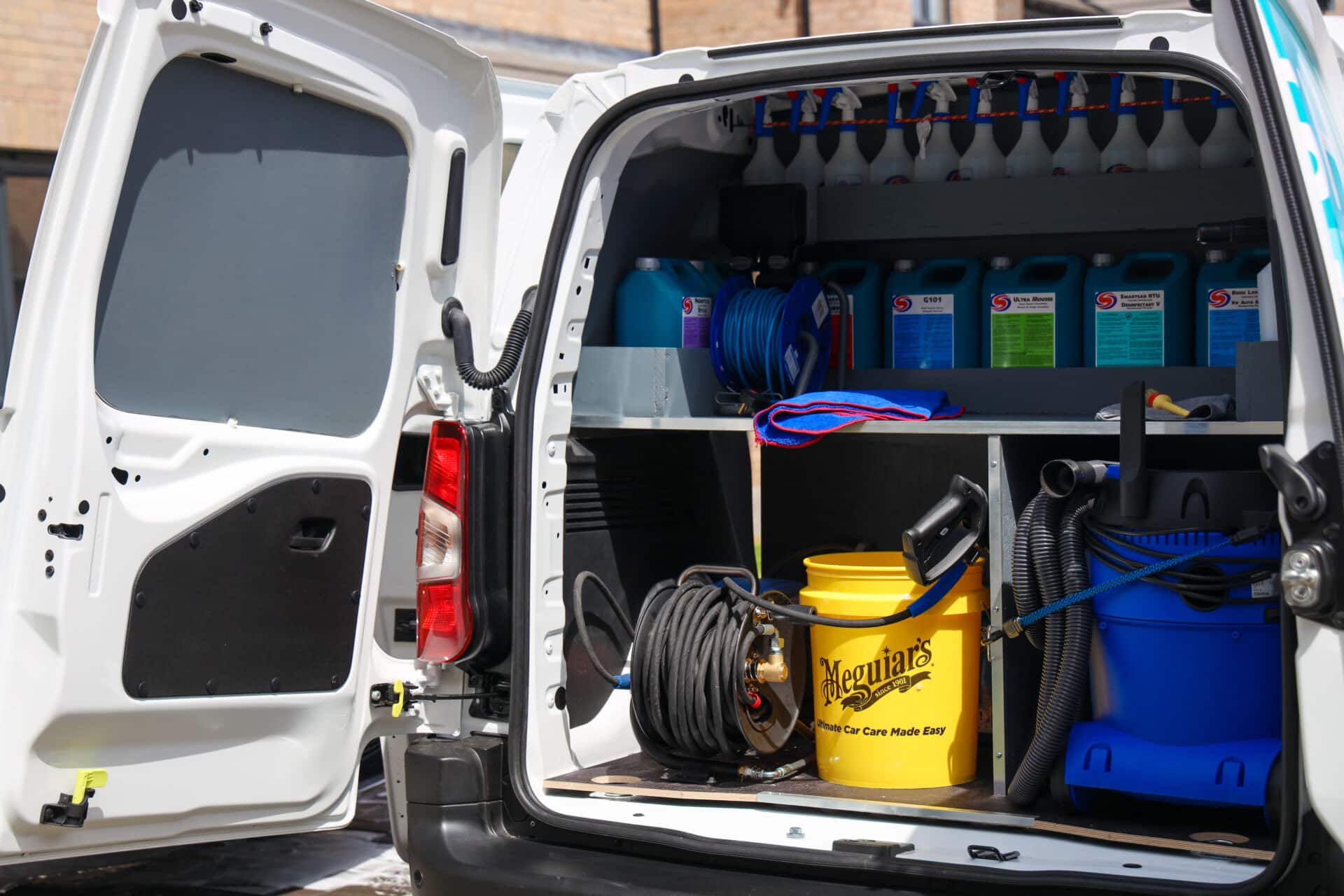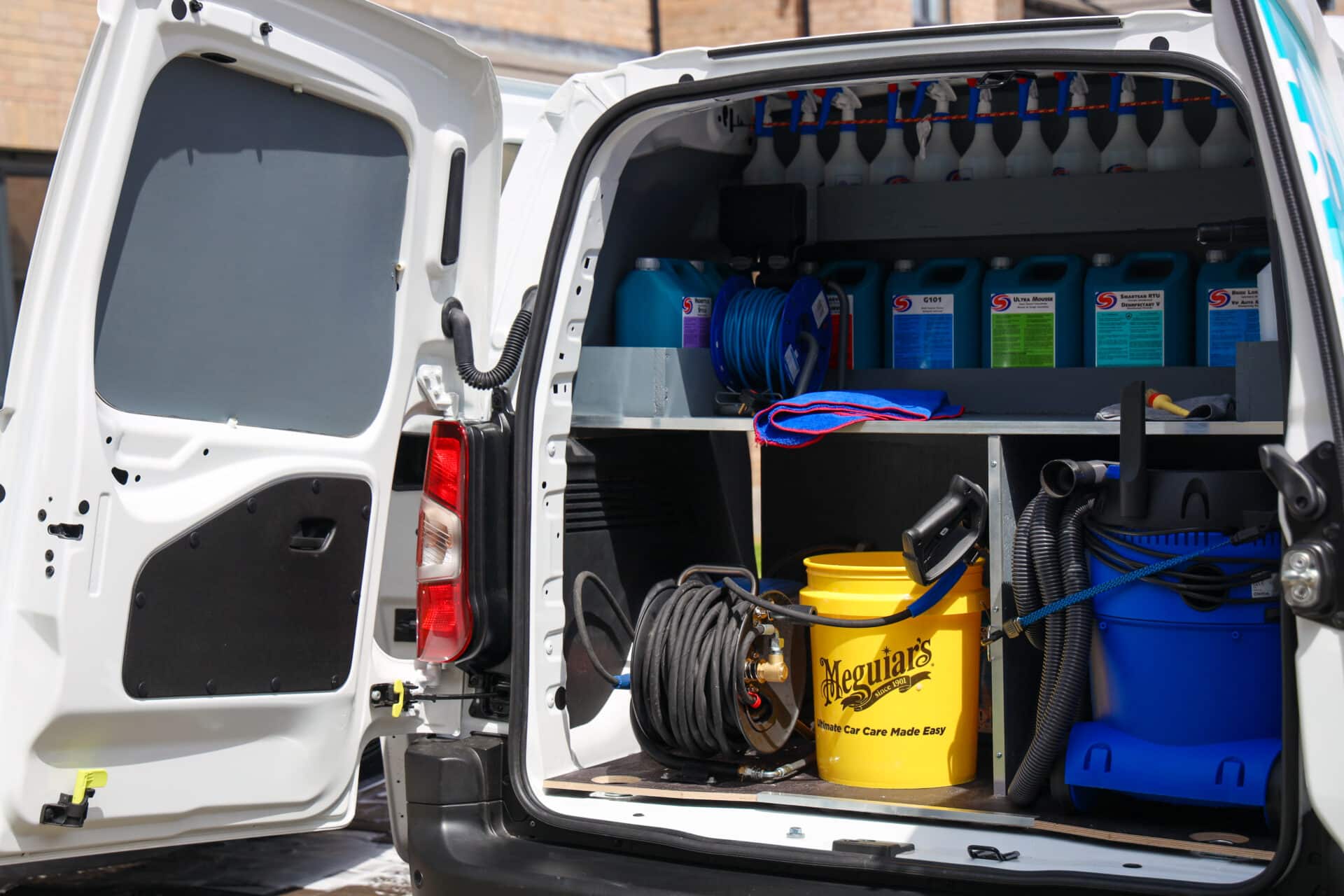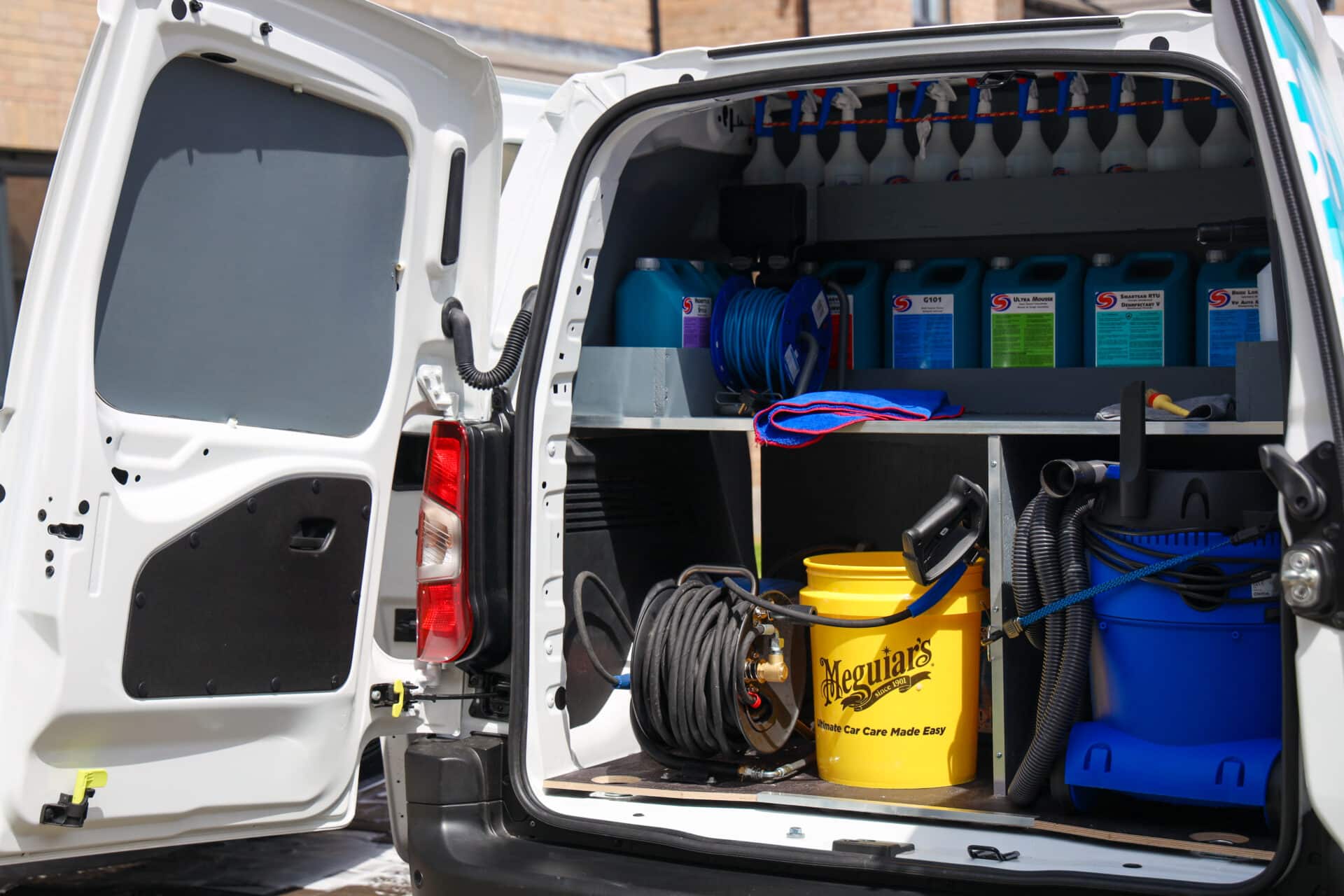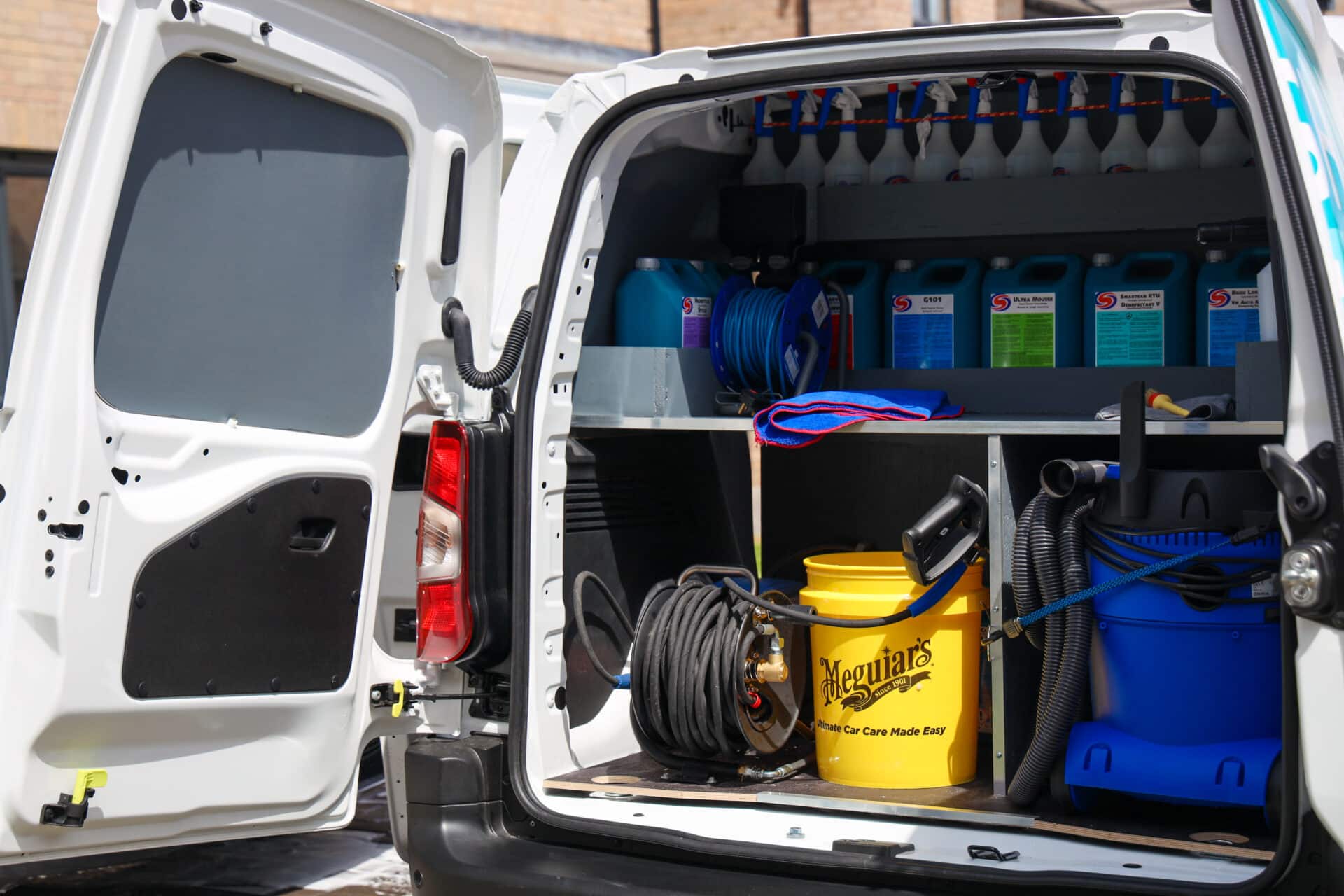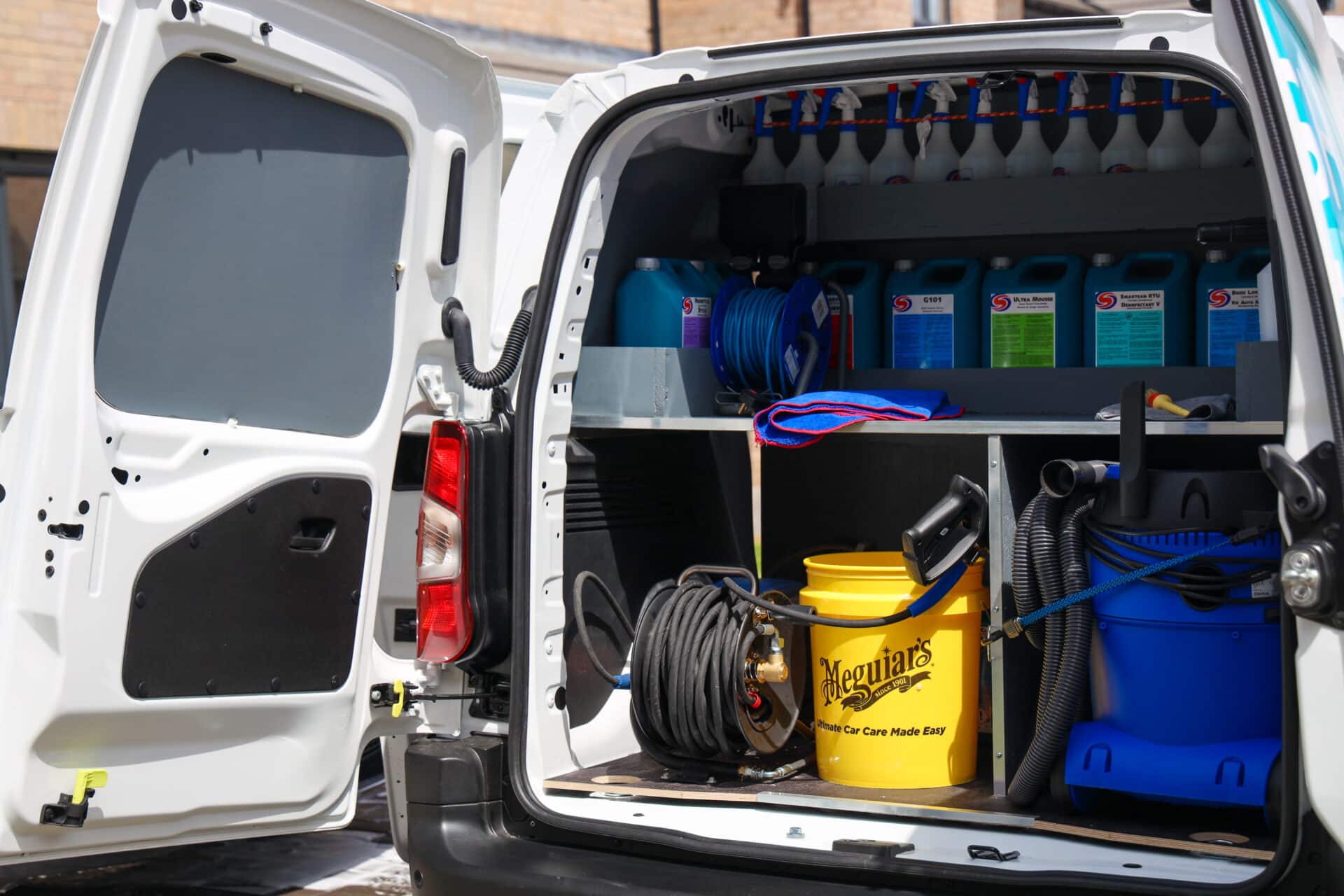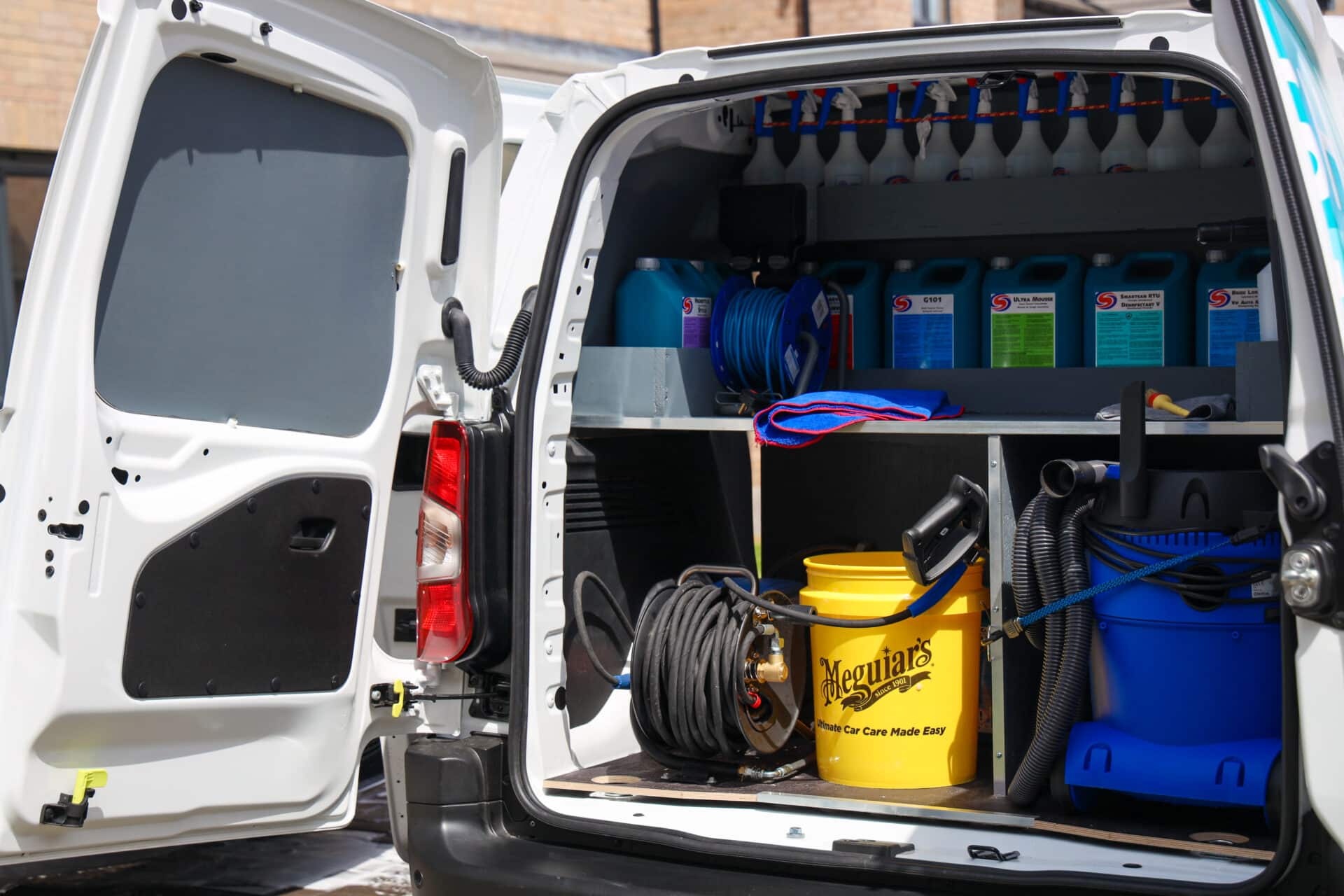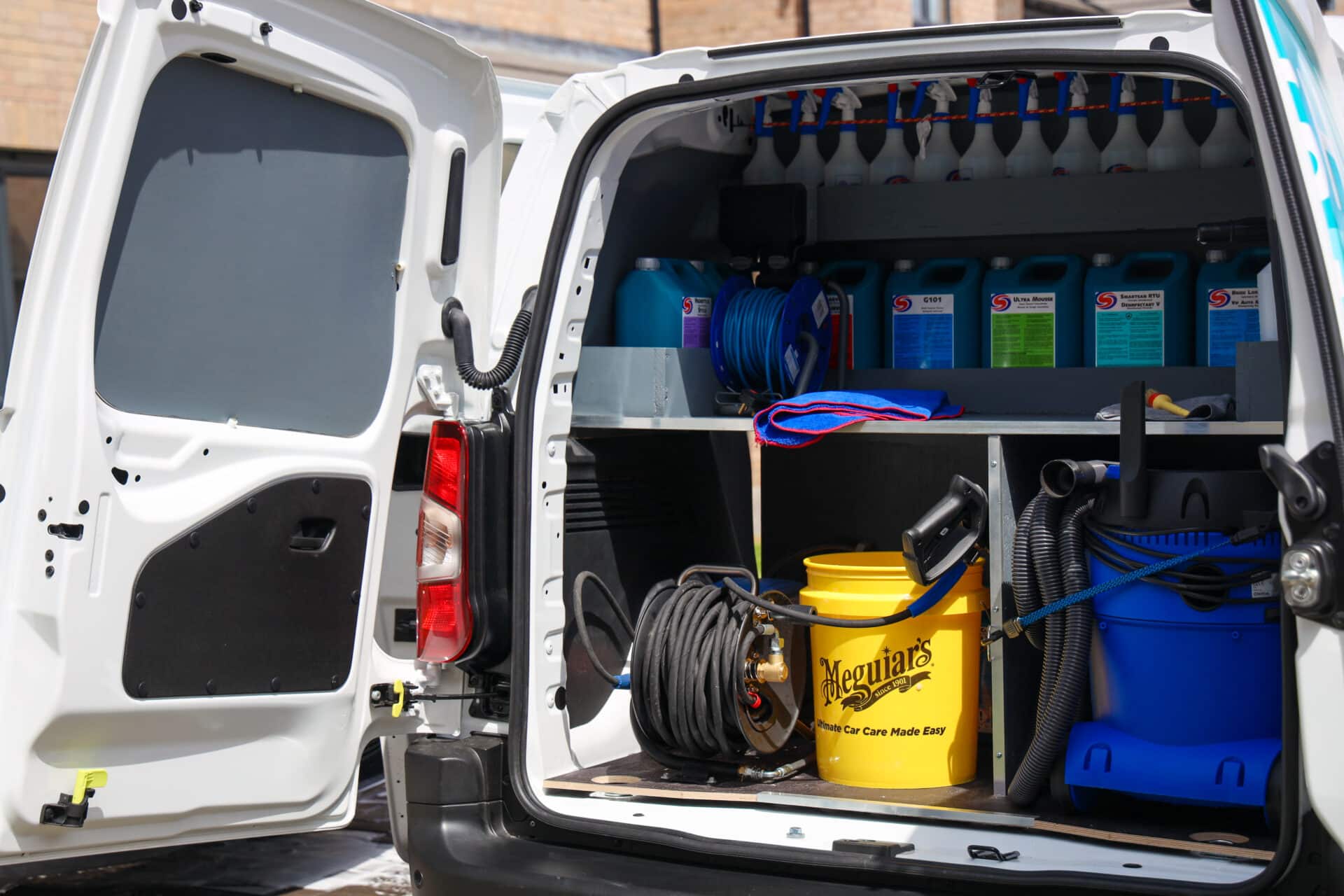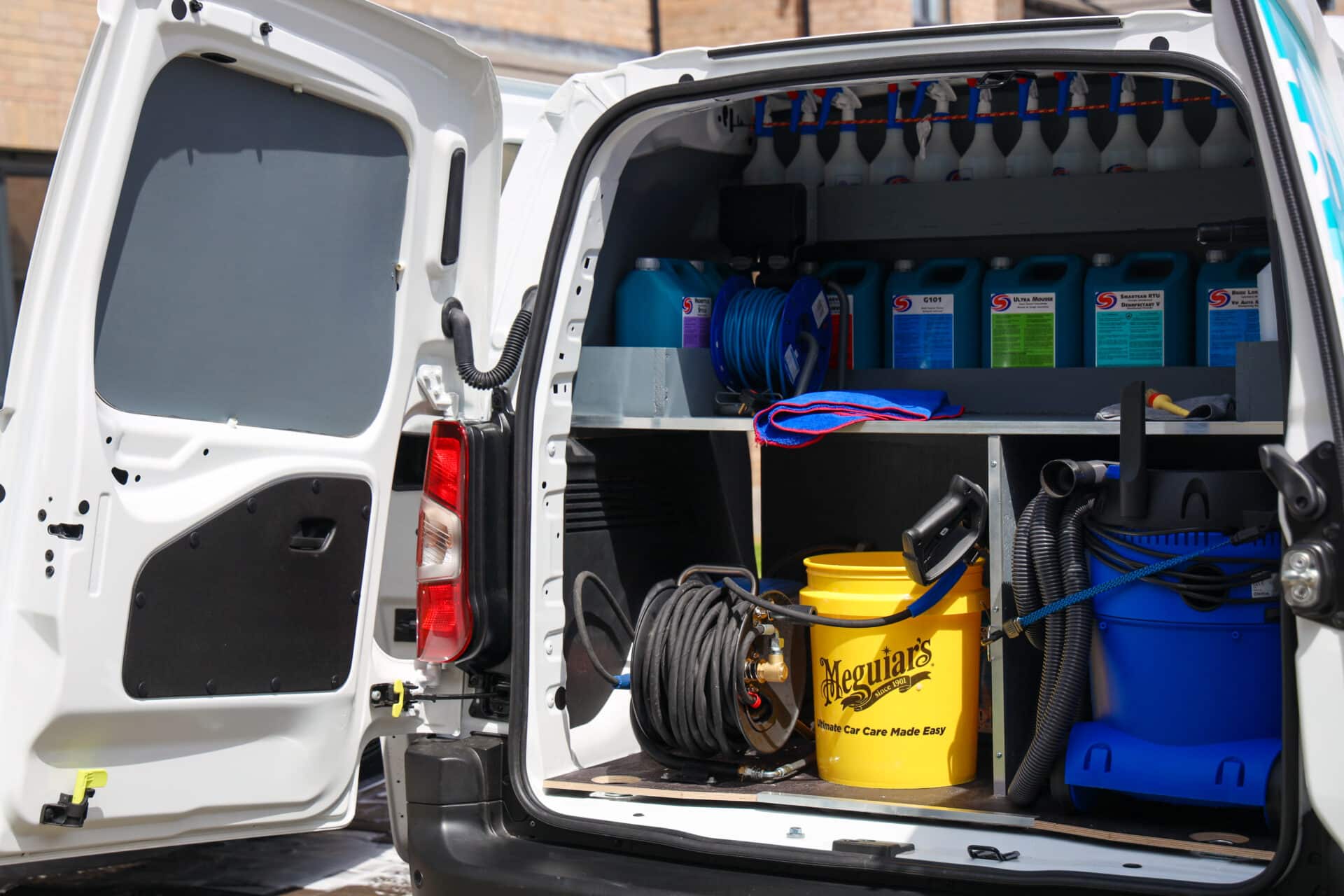Car valeting services have become increasingly popular across the UK, with mobile car valet businesses offering convenient on…
Car Valet Health & Safety Insurance: Essential Protection for Vehicle Cleaning Professionals
The car valeting industry presents unique health and safety challenges that require specialized insurance protection. From chemical exposure to slip hazards and equipment-related injuries, car valet businesses face daily risks that could result in costly claims, regulatory penalties, and business disruption. Understanding the importance of comprehensive health and safety insurance is crucial for protecting your valeting operation, employees, and customers.
Understanding Car Valet Health & Safety Risks
Car valeting involves numerous activities that create potential health and safety hazards. Chemical handling poses risks of skin irritation, respiratory problems, and eye injuries from cleaning products, waxes, and polishes. Water usage creates slip and fall hazards on wet surfaces, while pressure washing equipment can cause serious injuries if mishandled. Manual handling of equipment, vacuum cleaners, and cleaning supplies can lead to back injuries and repetitive strain disorders.
Working in confined spaces like vehicle interiors presents risks of chemical vapor exposure and ergonomic strain. Electrical equipment used in wet environments creates electrocution hazards, while working outdoors exposes staff to weather-related risks and UV exposure. Mobile valet services face additional road traffic risks when operating at customer locations.
Legal Requirements and HSE Compliance
Car valet businesses must comply with extensive health and safety legislation. The Health and Safety at Work Act 1974 requires employers to ensure employee safety and welfare. COSHH regulations govern the storage, handling, and use of hazardous cleaning chemicals. Manual Handling Operations Regulations address lifting and carrying risks, while Personal Protective Equipment Regulations require appropriate safety equipment provision.
The Working Time Regulations protect employee working hours and rest periods, particularly important for mobile valet services. Workplace Health, Safety and Welfare Regulations cover facility standards, ventilation, and welfare provisions. The Management of Health and Safety at Work Regulations require risk assessments, safety policies, and staff training programs.
Types of Health & Safety Insurance Coverage
Employers Liability Insurance is legally required and covers compensation claims from injured employees. This includes coverage for chemical exposure injuries, slip and fall accidents, equipment-related injuries, and occupational health conditions. Public Liability Insurance protects against third-party injury claims, including customer injuries on business premises or damage to customer vehicles during valeting.
Professional Indemnity Insurance covers claims arising from inadequate health and safety procedures, failure to follow safety protocols, or advice given regarding vehicle care. Product Liability Insurance protects against claims from defective cleaning products or chemicals that cause injury or damage. Business Interruption Insurance covers lost income following health and safety incidents that force business closure.
Chemical Handling and COSHH Compliance
Car valet businesses use numerous hazardous substances requiring careful management. Cleaning chemicals, degreasers, polish removers, and wheel cleaners can cause skin burns, respiratory irritation, and eye damage. COSHH assessments must identify all hazardous substances, evaluate exposure risks, and implement control measures.
Proper storage in secure, ventilated areas prevents chemical accidents and environmental contamination. Staff training on chemical handling, mixing procedures, and emergency response is essential. Personal protective equipment including gloves, eye protection, and respiratory equipment must be provided and maintained. Safety data sheets for all chemicals must be readily available and understood by all staff.
Workplace Safety and Accident Prevention
Effective workplace safety management reduces accident risks and insurance claims. Non-slip flooring and drainage systems prevent slip hazards in wash areas. Adequate lighting ensures safe working conditions, particularly in covered wash bays. Equipment maintenance programs prevent mechanical failures that could cause injuries.
Emergency procedures must cover chemical spills, equipment failures, and medical emergencies. First aid facilities and trained first aiders should be available on-site. Regular safety inspections identify and address potential hazards before accidents occur. Incident reporting systems track near-misses and accidents to prevent recurrence.
Equipment Safety and Maintenance
Pressure washing equipment requires regular safety checks and maintenance. High-pressure water can cause serious injuries if equipment fails or is misused. Electrical equipment must be PAT tested regularly and protected from water ingress. Vacuum cleaners and extraction equipment need regular maintenance to prevent mechanical failures.
Chemical dosing systems must be calibrated correctly to prevent over-concentration and chemical burns. Lifting equipment for accessing vehicle roofs requires regular inspection and maintenance. Mobile equipment must be secured during transport to prevent road traffic accidents.
Staff Training and Competency
Comprehensive staff training is essential for health and safety compliance. New employee induction must cover all safety procedures, chemical handling, and emergency protocols. Regular refresher training ensures continued competency and awareness of new risks. Specialized training may be required for pressure washing, chemical handling, and working at height.
Training records must be maintained to demonstrate compliance during inspections. Competency assessments ensure staff can safely perform their duties. Supervision of new staff prevents accidents during the learning period. Safety briefings before each shift reinforce key safety messages.
Mobile Valet Additional Considerations
Mobile car valet services face unique health and safety challenges. Road traffic risks during travel to customer locations require appropriate vehicle insurance and driver training. Working at customer premises may involve unfamiliar hazards and limited safety facilities. Portable equipment must be secured and maintained to prevent accidents during transport.
Weather conditions significantly impact mobile operations, creating additional slip hazards and exposure risks. Limited access to welfare facilities at customer locations requires portable solutions. Emergency procedures must account for remote working locations and limited immediate support.
Claims Management and Legal Defense
Health and safety insurance provides crucial legal defense support when accidents occur. Expert legal representation helps navigate HSE investigations and potential prosecutions. Claims management services ensure prompt, professional handling of employee and third-party claims. Medical expert witnesses provide technical support for complex injury claims.
Rehabilitation support helps injured employees return to work safely and quickly. Legal costs can be substantial even for minor incidents, making insurance protection essential. Settlement negotiations require experienced professionals to achieve fair outcomes while protecting business interests.
Cost Factors and Premium Considerations
Health and safety insurance premiums depend on various risk factors. Business size, number of employees, and annual turnover affect premium calculations. Claims history significantly impacts renewal premiums, making effective risk management crucial. The types of chemicals used and safety procedures implemented influence risk assessments.
Location factors including crime rates and environmental hazards affect premiums. Mobile operations typically attract higher premiums due to increased risks. Safety training programs and certifications may qualify for premium discounts. Regular risk assessments and safety audits demonstrate commitment to risk management.
Choosing the Right Insurance Provider
Selecting an appropriate insurance provider requires careful consideration of coverage options and service quality. Look for insurers with experience in the car valet industry who understand specific risks and requirements. Comprehensive coverage including all necessary protections should be available under a single policy where possible.
Claims handling reputation is crucial - research how quickly and fairly the insurer settles claims. Legal defense capabilities should include specialist health and safety lawyers. Risk management support services can help improve safety standards and reduce premiums. Competitive pricing should be balanced against coverage quality and service levels.
Risk Assessment and Safety Management
Regular risk assessments form the foundation of effective health and safety management. Identify all potential hazards including chemical exposure, slip risks, equipment dangers, and manual handling issues. Evaluate the likelihood and severity of potential accidents to prioritize control measures. Implement appropriate controls including engineering solutions, procedural changes, and personal protective equipment.
Review risk assessments regularly and after any incidents or changes to operations. Document all assessments and control measures to demonstrate compliance. Involve employees in risk assessment processes to benefit from their practical experience. Monitor the effectiveness of control measures and adjust as necessary.
Emergency Procedures and Incident Response
Comprehensive emergency procedures ensure effective response to health and safety incidents. Chemical spill procedures must include containment, cleanup, and reporting requirements. Medical emergency procedures should cover first aid response and emergency service contact. Equipment failure procedures prevent secondary accidents and minimize business disruption.
Fire emergency procedures are particularly important given the use of flammable chemicals and electrical equipment. Evacuation procedures must account for customers and visitors on premises. Communication procedures ensure all relevant parties are informed promptly. Regular emergency drills test procedure effectiveness and staff competency.
Regulatory Compliance and Inspections
Health and Safety Executive inspections can occur without warning and result in significant penalties for non-compliance. Maintain comprehensive documentation of all safety procedures, training records, and risk assessments. Regular internal audits identify compliance gaps before official inspections. Corrective action procedures address any identified deficiencies promptly.
Environmental health inspections may also review chemical storage and waste disposal procedures. Insurance requirements must align with regulatory obligations to ensure coverage validity. Legal updates require regular review of procedures to maintain compliance. Professional advice may be necessary for complex compliance issues.
Benefits of Comprehensive Coverage
Comprehensive health and safety insurance provides peace of mind and financial protection for car valet businesses. Legal compliance support ensures adherence to complex regulations while minimizing administrative burden. Financial protection covers potentially devastating compensation claims and legal costs. Business continuity support helps maintain operations following serious incidents.
Professional reputation protection prevents negative publicity from affecting customer relationships. Employee confidence improves when staff know they are properly protected. Competitive advantage results from demonstrating professional standards and insurance protection. Long-term business sustainability requires effective risk management and insurance protection.
Conclusion
Car valet health and safety insurance is essential protection for businesses operating in this high-risk industry. The combination of chemical hazards, equipment risks, and regulatory requirements creates significant exposure that could devastate an uninsured business. Comprehensive coverage including employers liability, public liability, and professional indemnity insurance provides crucial financial protection and legal defense support.
Effective risk management, staff training, and safety procedures not only reduce insurance premiums but also create a safer working environment for employees and customers. Regular review of coverage ensures protection remains adequate as businesses grow and evolve. Professional insurance advice helps navigate the complex requirements and secure appropriate coverage at competitive rates.
Investing in comprehensive health and safety insurance demonstrates professional commitment to employee welfare and customer safety while protecting the long-term viability of your car valet business.


 0330 127 2333
0330 127 2333
